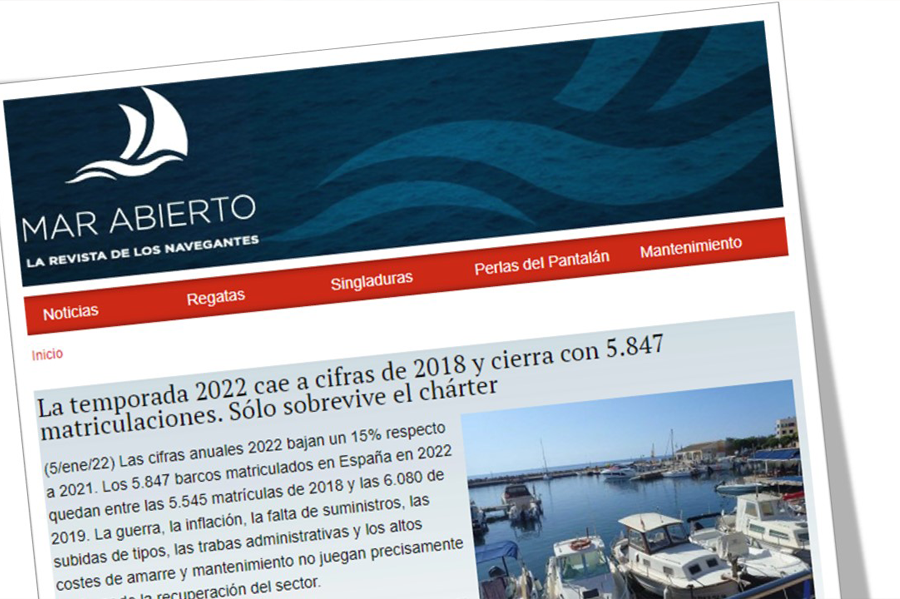Anyone who knows a thing or two about boating knows that private ownership – though certainly aspirational – can be very costly. Charter boats offer a way for those who want to enjoy the sailing lifestyle to do so without the high price tag. And try out those sea legs before going all in, of course!
As such, it’s little surprise that the charter industry has ballooned in the last decade and a half, now making up a third of new boat sales and registrations. A noticeable increase, with charters comprising just 2.65% of Spanish vessels in 2007, in comparison.
However, with the total number of boats registered in Spain dropping to figures similar to that seen last in 2018, it seems that private boat ownership is taking the knock instead.
Charter vs. Private Registrations in Spain: How Do the Two Measure up in 2022?
A total of as little as 5,847 boats were registered in Spain in 2022, down 14.94% from 2021. Only slightly above the 5,545 figures seen in 2018. Of the boats registered in 2022, a total of 1,963 were charters – around 33.5%.
In contrast, the private boat industry – which had largely dominated the market – is now taking more and more of a back seat. In 2007, prior to the financial crisis, a sizable 10,000 boats were registered in Spain alone. Of which these, the majority were privately owned vessels.
In comparison, charter registrations remained relatively stable. The figures in Spain were only slightly lower in 2022 compared to 2021 when around 1,992 were registered.
How Does This Drop in Private Ownership Affect the Industry?
The sailing industry has long been accustomed to a majority private ownership of pleasure vessels. With charters now nearing most of the new sales and registrations in Spain – potentially hitting the 50% mark by 2030 – it will need to adapt. As a hotspot for boat sales, registration, and boating, the rest of the EU is likely to see similar changes.
A few sectors which may need to adapt to survive include:
- Marinas, who will need to adopt new licensing models for groups and short-stays.
- Yacht clubs, who may have to open their doors to short-term business over memberships.
- Boat dealers, who must now position themselves to sell to commercial enterprises.
- Waterside establishments, who still need to protect and cater to private boat patrons.
- And even boat registration companies, such as ourselves.
Instead of mingling with fellow boat enthusiasts, many regulars – particularly those embarking at popular destinations around the Med and EU – will also be experiencing a different crowd. Both at port and at sea.
Since commercial boats spend most days out, they’ll likely be hogging more and more of the waters. So, private boat owners have to be ready to express their needs as more competition enters the picture. Be it with establishments who pander to charters or charter companies that step on their toes!
There’s Good News on the Horizon
The good news is that the 2022 drop in registrations in Spain may have been a temporary trend. Despite a dismal start to the year, registrations here actually picked up by 31% in the last quarter. Most likely due to a phenomenally busy summer season in the Mediterranean after restrictions were lifted.
If not for this occurrence, a 17% drop in registrations instead of the ultimate >15% would have been the reality. You should also note that registration of longer pleasure craft over 16 meters in Spain saw an increase in sales. Potentially due to these larger vessels being used for charter purposes, though.
With that in mind, be sure to get your boat registrations in early, before summer 2023 hits. We may see bottlenecks as the sailing and charter industries reopen for business as usual in the wake of the pandemic.
Source : La temporada 2022 cae a cifras de 2018 y cierra con 5.847 matriculaciones. Sólo sobrevive el chárter, Mar Abierto


